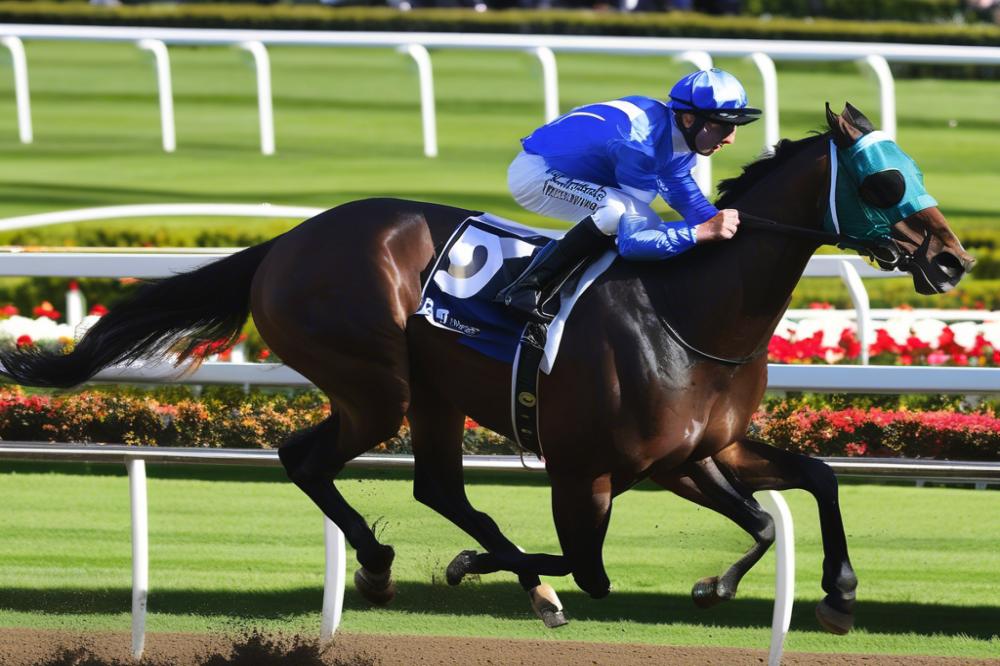Fawkner: A Glimpse into Horse Racing History
In the world of horse racing, certain names stand out because of their incredible performances on the track. One such name is Fawkner, a remarkable racehorse known for his strength and speed. This equine athlete achieved an impressive milestone when he won the Caulfield Cup in Australia in 2013. This victory is often celebrated as one of the highlights of Australian horse racing.
Winning the Caulfield Cup is no small feat. This prestigious event attracts top contenders from all around, making it a significant highlight in the racing calendar. Many fans and enthusiasts closely follow these races, eager to see which talented competitors will emerge victorious. Fawkner’s win in 2013 not only brought glory to his connections but also added a memorable chapter to his story. Such accomplishments remind many of the question: are ponies and horses the same species? The answer keeps people curious about the rich world of equines.
Furthermore, the horse racing community often refers to such accomplished racers as “cast horses.” This term highlights the unique status of these champions among their peers. Fawkner’s success solidified his reputation and left a lasting impression on fans and fellow competitors alike. His legacy continues to inspire new generations of racers and horse enthusiasts.
Fawkner’s History and Origin
Geographic origins of Fawkner
Fawkner was born in Australia, a country known for its rich horse racing culture. His birthplace was in Victoria, a state that hosts some of the most prestigious racing events. The local environment contributed to his development and strength as a racehorse. Trainers in this region have a deep understanding of what it takes to succeed on the track.
Details about Fawkner’s breeding and bloodlines
This horse is a product of careful breeding. He is a descendant of the famous stallion, Reset. Reset had quite the reputation in the racing world. His bloodlines are solid, which adds to Fawkner’s promise as a racehorse. Breeders often look for specific traits to pass down through generations. In Fawkner’s case, these traits have clearly paid off.
Notable lineage and relationships to famous racehorses
Fawkner’s family tree includes connections to several renowned racehorses. One notable ancestor is the champion racehorse Zabeel. Zabeel is known for having produced many successful offspring. This lineage boosts Fawkner’s profile in the racing community. His connections to such celebrated horses create a sense of legacy. Many fans appreciate knowing the background of their favorite racers. It connects them to the rich history of the sport.
Fawkner and the Caulfield Cup Australia
Overview of the 2013 Caulfield Cup race
The 2013 Caulfield Cup was an exciting event in Australian horse racing. Held on October 19, it featured a strong field of competitors. This race is famous for its prestige and attracts top horses each year. Fans looked forward to seeing which contender would emerge victorious in this classic race. It was one of the highlights of the racing calendar.
Leading up to the race: preparation and form
In the weeks before the cup, trainers worked diligently to prepare their horses. The main goal was to keep them in peak condition. Many believed that a solid preparation would make all the difference on race day. Form guides showed how all the horses had performed in their recent races. Some contenders had impressive wins, while others faced challenges. Each horse brought its own story to the race.
Significant moments during the race and victory details
As the race began, excitement filled the air. Horses jumped from the gate, each jockey guiding their mount with skill. Early on, a few favorites took the lead, setting the pace. Everyone watched closely as they rounded the final turn. The crowd erupted as the horses approached the finish line. Necks were stretched, and hearts raced. In a thrilling finish, one horse surged ahead to claim victory. Riders and connections celebrated on the track, joy evident on their faces. The 2013 Caulfield Cup would be remembered for its drama and the triumph of the winning horse.
Fawkner’s Trainer and Legacy
Trained by the accomplished Robert Hickmott, Fawkner rose to prominence in the racing world. Hickmott has a knack for developing strong horses, and his training methods certainly paid off with this incredible competitor. His guidance helped shape Fawkner into a formidable racer capable of winning the prestigious Caulfield Cup in 2013. Throughout his career, Hickmott has achieved numerous accolades, further solidifying his status in the industry. He knows how to nurture talent, and his relationship with Fawkner showcased this skill perfectly.
The legacy left by this exceptional horse extends beyond that singular victory in Melbourne. Fawkner became a symbol of determination and capability in Australian racing. His wins are celebrated memories for fans and enthusiasts. Many view him as one of the greats, standing alongside other illustrious horses in history. This recognition not only reflects Fawkner’s achievements but also highlights the impact of his trainer’s care and expertise.
Connecting Fawkner to the broader equestrian world brings to light some interesting discussions. For example, conversations about good horse names for mares often surface, linking how names can reflect qualities like strength or grace. Additionally, those involved in equestrian events might find themselves discussing horseback riding ribbon colors. These conversations remind people of the rich tapestry of racing culture, where horses like Fawkner have paved the way for future stars.
In summary, Fawkner’s journey under Hickmott’s tutelage demonstrated a significant bond between trainer and horse. Their achievements not only reshaped individual careers but also left an imprint on the racing community. The legacy continues to influence discussions about training methods and horse racing today. This unique story intertwines the past, present, and future of the sport, reminding everyone of the commitment and passion shared by those involved.
#anchor_text_5#



